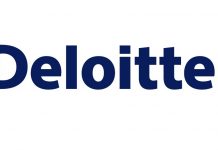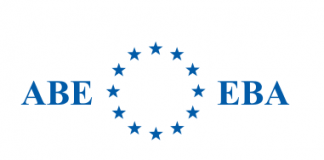2016 is the year real estate wakes up to blockchain as industry professionals are looking to harness the technology to reduce costs, stamp out fraud and speed up transactions.
One particular metric that is proof of the nascent eagerness of the industry for blockchain technology is growth of the International Blockchain Real Estate Association (IBREA).
IBREA, a non-profit, member-focused trade organization focusing on implementing bitcoin and related blockchain technology in real estate transactions, has welcomed 600 new members in the last seven months. “It took us two years to get to 200 members,” Ragnar A. Lifthrasir, founder and president of IBREA, told Chain-Finance in an interview.
Founded in 2013 in Orange County California, IBREA brings together over 840 members in 17 countries representing areas and industries that include brokerage, government agencies, venture capital, notaries public, academia, crowdfunding, title insurance and investment.
“I started IBREA in 2013 to connect individuals in the real estate industry with people in the bitcoin community,” Lifthrasir said. “Back then, very few bitcoin entrepreneurs and developers were thinking about applying the technology to property transactions. And the few that were, didn’t have enough experience in real estate to build a successful application.”
“In the first few years after Bitcoin’s creation, the real estate industry didn’t have much of a perception of it because they didn’t know what it was. The few that did know about it focused on bitcoin as a currency to pay rent or buy a property.”
Blockchain in real estate
But this year is different as an increasing number of startups, firms and government agencies are exploring usage in other industries than financial services. Notably, the Republic of Georgia’s National Agency of Public Registry and the Swedish Land Registry are both working separately on a blockchain-enabled land registry system. The Republic of Georgia has teamed up with BitFury, while Sweden is working with domestic blockchain company ChromaWay.
Blockchain technology holds many promises for real estate, allowing for optimized processes and accelerating disintermediation in an industry that has been “plagued” by middlemen.
“Blockchain technology can replace [middlemen] with peer-to-peer transactional tools,” Lifthrasir said. “It can provide a comprehensive platform for the life cycle of a property. Title insurance, escrow companies, county recorder’s offices, brokers, lawyers, home owner associations, and various support staff can be replaced with a combination of digital tokens, multi-sig escrow, smart contracts, time stamped encrypted data, and cryptocurrency.”
Among the benefits of using this technology, “Bitcoin and other public blockchains can reduce costs, stamp out fraud, speed up transactions, increase financial privacy, internationalize markets, and make real estate a liquid asset,” he said.
With IBREA, Lifthrasir seeks to educate industry professionals on the technology, raise awareness and promote its use in real estate. In the long run, Lifthrasir hopes to see several open source blockchain platforms powering the majority of real estate title claims, escrow, purchases, and investment governance. “We want to un-silo the industry,” he said.
Real estate tech
Lifthrasir, who has worked in real estate for a decade, has witnessed notable changes in the industry, not just regarding blockchain, but regarding the acceptance and use of digital platforms and technology in general.
Today, a number of startups are proposing solutions to transform an industry that has been ripe for disruption. Players such as 42Floors, are helping users search for commercial real estate; others like VivaReal are offering marketplaces that help match commercial real estate buyers with sellers.
VTS, a commercial leading and asset management platform for landlords and brokerages, is one of the hottest real estate tech startups right now. In May, VTS raised US$55 million in Series C funding round led by Insight Venture Partners, bringing its total funding to over US$88 million.
Real estate tech accelerator MetaProp NYC has just wrapped up its application phase for its second class. MetaProp NYC is a 22-week program focusing on driving business growth and accelerated market penetration backed by the Real Estate Board of New York, the New York City Economic Development Corporation, Silicon Valley Bank, and the Zillow Group, among others.
“This change is driven by the sons and daughters of baby-boomer real estate developers,” Lifthrasir said. “Our generation is young enough to be comfortable with technology, but now old enough to be decision makers.”
That being said, real estate still remains an old fashioned industry that is reluctant to changes.
“The biggest challenge for adoption of blockchain for real estate is an industry that is afraid of change,” Lifthrasir said.
“When speaking to various industry leaders, a common thing I’ve heard many times is, ‘Who else is using this?’ The real estate industry has too many people who want to not make a mistake rather than innovate. It’s why our industry is years behind Wall Street in terms of technology adoption.”






